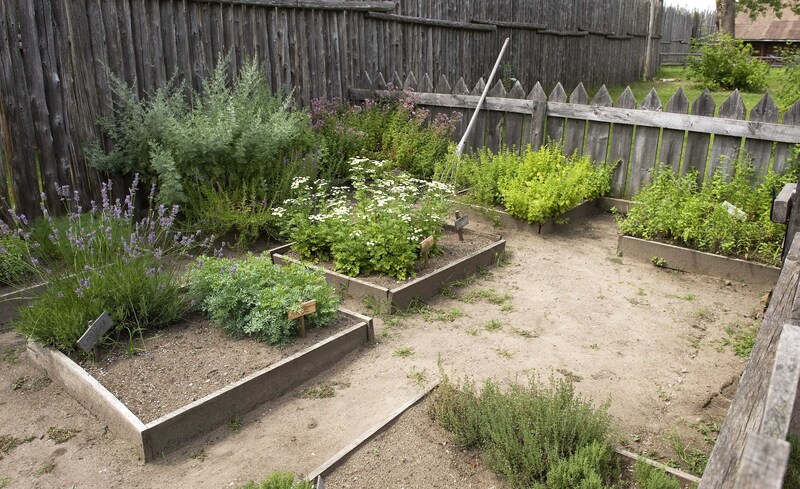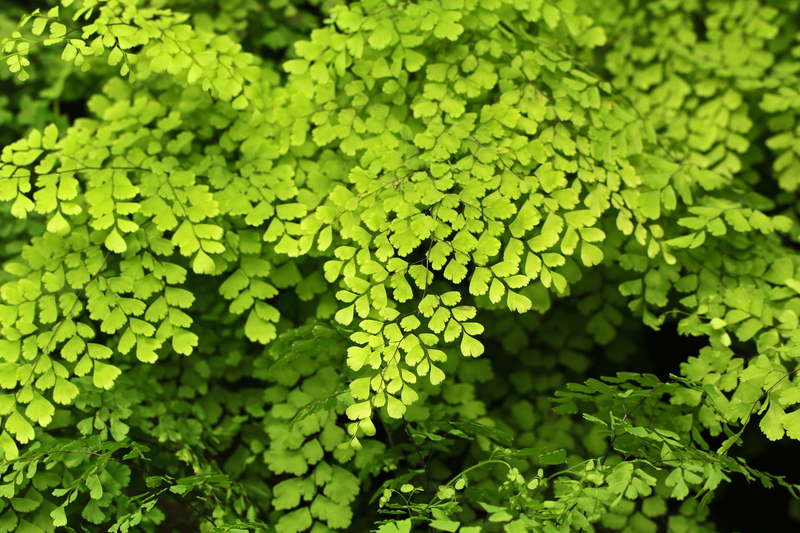Caring for Your Garden in Cold Weather: A Plant Protection Guide
Posted on 05/06/2025
Caring for Your Garden in Cold Weather: A Plant Protection Guide
Winter doesn't have to spell the end of your garden's beauty and productivity. With the right strategies, plants can not only survive but thrive in the cold. Effective garden care in cold weather requires a blend of preparation, practical techniques, and ongoing attention. In this Comprehensive Guide to Plant Protection, we'll explore actionable steps to help every gardener safeguard their green haven throughout the chilly months.
Why Cold Weather Threatens Your Garden
Understanding how cold weather affects plants is the first step in effective protection. Cold temperatures can:
- Destroy tender foliage or cause frostbite on stems and blooms
- Damage roots, especially in containers or shallow-soil beds
- Dehydrate plants due to frozen water supplies and dry winds
- Disrupt growth cycles, impacting spring vitality
Being aware of these risks highlights the importance of proactive garden care in winter.

Preparing Your Garden for Winter Weather
Early Autumn Actions
- Evaluate plant hardiness: Know which of your plants are hardy, half-hardy, or tender. This informs your protection strategy.
- Prune and tidy: Remove dead or diseased foliage. Cut back perennials and annuals as required to minimize pest and disease risk.
- Clean up debris: Fallen leaves and plant material can harbor pests and diseases over winter.
- Plan transplants: Move delicate plants indoors or to sheltered spots before the first frost hits.
Soil and Mulch Preparation
- Amend soil: Improve drainage and fertility by mixing in compost or organic matter. Well-fed soil insulates roots better.
- Apply mulch: Add 2-4 inches of mulch around the base of perennials, shrubs, and trees. Mulch acts as a thermal blanket, reducing freeze-thaw cycles and keeping soil temperatures stable.
- Remove weeds: Weeds compete for resources and can exacerbate cold stress.
Frost Protection Techniques
Understanding Frost
Frost occurs when air temperatures drop low enough for dew to freeze on plant surfaces. Not all frosts are equal:
- Light frosts (<32?F/0?C): Can damage tender annuals and unprotected vegetables
- Hard frosts (<28?F/-2?C): Even hardy perennials, some trees and shrubs can suffer
Proven Methods to Shield Plants from Frost
- Row covers and frost cloths: Drape breathable material over plants at night, securing the edges to trap ground heat.
- Burlap wraps: Protect tree trunks and large shrubs by wrapping with burlap in vulnerable areas.
- Cloche and cold frames: Individual covers made from glass, plastic, or DIY materials extend the growing season for vegetables and delicate flowers.
- Move potted plants: Relocate container plants to garages, greenhouses, or sheltered corners.
- Water before a cold front: Moist soil holds heat better than dry, but avoid waterlogging.
Tip: Remove covers during the day to avoid overheating and allow sunlight in.
Ongoing Winter Garden Care
Watering Wisely in Winter
Many gardeners assume plants don't need water when dormant, but dehydration is a top winter killer.
- Water during dry spells: If the ground isn't frozen and a dry spell hits, provide a thorough soak, especially for evergreens.
- Avoid watering before a true freeze: Excess moisture in freezing conditions can cause root rot or plant splitting.
- Mulch to conserve moisture: Mulch not only insulates but also reduces evaporation from soil.
Monitoring and Pruning
- Check for snow and ice damage: Brush heavy snow off branches to prevent snapping. Gently shake, do not hit or use force.
- Prune damaged wood: Remove cracked or broken branches promptly to discourage disease.
- Avoid severe pruning until spring: Pruning stimulates new growth, which is susceptible to cold injury.
Protecting Evergreens and Lawns
- Wrap conifers and shrubs in exposed sites: Use burlap screens to minimize wind burn.
- Limit foot traffic on lawns: Frozen grass is brittle and easily damaged; use pathways where possible.
- Apply anti-desiccant spray: This can help evergreens retain moisture through winter winds.
Container Garden Protection Tips
Potted plants need extra care in the cold. Their roots have less insulation and are more prone to freezing. Here's how to safeguard your container garden:
- Group pots together: Clustering pots creates a microclimate and shields from wind.
- Elevate pots: Sit containers on pot feet or bricks to avoid waterlogged roots and frozen bases.
- Insulate pots: Wrap containers in burlap, bubble wrap, or horticultural fleece. For extreme cold, move them into a shed or garage.
- Water sparely: Roots use less water in cold. Overwatering causes freezing and root death.
Remember to check pots periodically for signs of distress. Plants in terracotta or ceramic pots are particularly vulnerable to cracking in frost.
Vegetable Gardening in Cold Weather
Cold months can still yield fresh food if you protect your vegetable beds smartly:
- Sow hardy crops: Kale, spinach, garlic, onions, and some carrots tolerate frost well.
- Utilize row covers and cold frames: These enable you to harvest greens even after the frost comes.
- Mulch thickly: A deep mulch insulates root crops and spinach, and can be parted to harvest as needed.
- Harvest before deep freezes: Lift tender crops (like beets and potatoes) before the first hard frost.
Maintaining Soil Health
- Plant cover crops: Green manures such as clover or vetch fix nitrogen and protect bare soil from erosion and compaction.
- Compost through winter: Turn your compost pile occasionally, adding kitchen waste and shredded leaves to keep microbes active.
Top Cold-Weather Plant Protection Products
- Floating row covers - Lightweight, reusable fabric for frost-sensitive vegetables and flowers
- Plant jackets and wraps - Insulate trunks and stems of shrubs and trees
- Insulating mulch - Bark chips, straw, or compost provide superior root protection
- Garden cloches or plant domes - Glass or plastic structures for individual plants
- Greenhouses and cold frames - For year-round growing and overwintering exotic or tropical plants
These products not only protect your garden in cold weather but also extend your growing capabilities throughout the season.
Common Mistakes to Avoid in Winter Garden Care
- Neglecting fall preparation: Most serious winter damage is the result of poor autumn readiness.
- Improper mulching: Too much mulch piled up against stems causes rot, while too little leaves roots vulnerable.
- Watering at the wrong times: Timing is key--water during mid-morning of mild days, never before a hard freeze.
- Leaving covers on in mild weather: Trapped humidity leads to rot and fungal problems.
- Forgetting about wildlife: Large sheets of frost cloth can trap birds or beneficial bugs--secure edges carefully and check regularly.

Frequently Asked Questions on Winter Plant Care
How do I know if my plants need protection?
If your garden includes tender annuals, half-hardy perennials, or subtropical plants," protection is essential at the first forecast of frost. Always check your region's hardiness zone and frost dates.
Can I use household materials for plant protection?
Yes! Old sheets, towels, and even cardboard boxes can be effective as overnight frost shields in a pinch. Just remember to remove them during the day to let plants breathe and soak up sunlight.
Should I stop fertilizing in autumn?
Fertilize with a balanced, slow-release feed in late summer to early autumn, then stop. Winter fertilization can prompt tender new growth that won't survive cold snaps.
Are there cold-tolerant plants I should consider?
Absolutely. Consider adding evergreens, conifers, hellebores, ornamental grasses, winter pansies, and witch hazel for winter interest and cold-hardy resilience in your landscape.
Summary: Mastering Cold Weather Garden Protection
Caring for your garden in cold weather is about anticipation, preparation, and flexible care strategies. Follow these steps to keep your landscape beautiful, healthy, and protected all season long:
- Prepare your garden and soil well before the frost arrives.
- Use smart frost protection techniques and materials for sensitive plants.
- Continue monitoring and gentle care through the winter months.
- Select proper products and avoid common mistakes for robust garden health.
With attention and the right techniques, your garden will emerge from winter stronger, providing color, structure, and food for wildlife year-round. Happy gardening!
```Latest Posts
Effortless Orchid Care for Every Plant Enthusiast
The allure of growing plants through container gardening
Innovative Ideas for Building Enchanting Garden Seating Zones
Harmonize Your Garden with Peaceful Zen Landscaping Concepts

